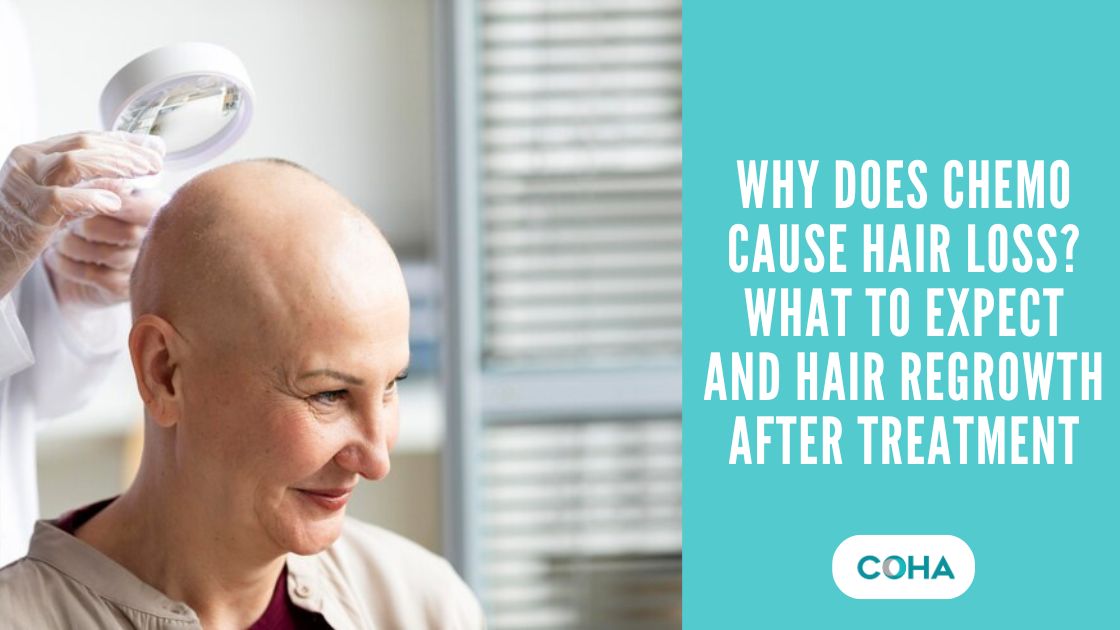


One of the most well-known side effects of chemotherapy is hair loss, a condition that can be both emotionally and physically challenging for patients undergoing cancer treatment. Chemotherapy works by targeting rapidly dividing cells, which includes both cancer cells and healthy cells, such as those in the hair follicles. This is why many patients experience chemo hair loss, ranging from mild thinning to complete baldness.
However, not all chemotherapy drugs cause hair loss, and the effects vary from patient to patient. The good news is that hair regrowth after chemo is possible, and in most cases, hair returns within a few months after treatment ends. Understanding why chemotherapy causes hair loss, what to expect, and how to support healthy hair regrowth can help patients navigate this journey with confidence.
Chemotherapy is designed to destroy fast-growing cancer cells, but in the process, it also affects other fast-growing cells in the body - including those in the hair follicles. Since hair follicles play a crucial role in hair growth, chemotherapy can weaken or destroy them, leading to hair loss.
Not all patients experience complete baldness - some may notice hair thinning, while others lose eyebrows, eyelashes, and body hair as well. The extent of cancer hair loss depends on:
Hair loss is temporary in most cases, and hair regrowth after chemo typically begins within weeks to months following the end of treatment.
Not every chemotherapy treatment leads to hair loss. Some medications only cause thinning, while others result in complete hair loss. Factors that influence whether a patient experiences hair loss include:
Your oncologist can provide guidance on what to expect based on your specific treatment plan.
Hair loss typically begins 1 to 3 weeks after starting chemotherapy. Initially, patients may notice increased shedding, followed by progressive thinning or patches of hair loss.
The degree of hair loss can vary, but for most patients, hair begins regrowing within weeks to months after completing chemotherapy.
One of the biggest concerns for cancer patients is: Will my hair grow back after chemo? The answer is yes, but the process can take time and varies from person to person.
To encourage strong, healthy hair growth after chemotherapy, consider the following:
While most patients experience hair regrowth after chemo, some may notice delayed or incomplete regrowth. If hair does not begin growing back within 6 months, consult a doctor to rule out possible nutritional deficiencies, hormonal imbalances, or underlying health conditions affecting regrowth.
Additionally, some cancer treatments, such as those targeting hormone-sensitive cancers (breast or prostate cancer), may result in long-term hair thinning. Your doctor can provide treatment options to support hair recovery.
Hair loss is a challenging yet temporary side effect of chemotherapy. While chemo hair loss occurs because the treatment targets fast-growing cells, hair almost always grows back once chemotherapy is complete. Patients can expect soft regrowth within weeks, with full hair recovery taking up to a year.
At Chesapeake Oncology-Hematology Associates, our team understands the emotional impact of cancer hair loss and is here to support you throughout your journey. Whether you’re undergoing treatment or seeking advice on hair regrowth after chemo, we’re committed to providing compassionate, patient-focused care.
If you have concerns about chemotherapy-related hair loss or need guidance on hair regrowth, contact us to schedule a consultation with our experts today. We’re here to help you every step of the way!